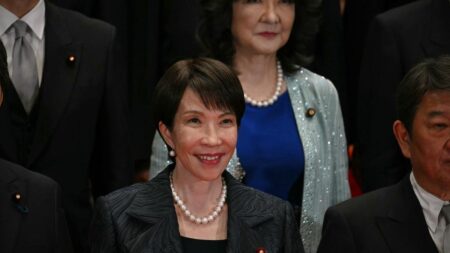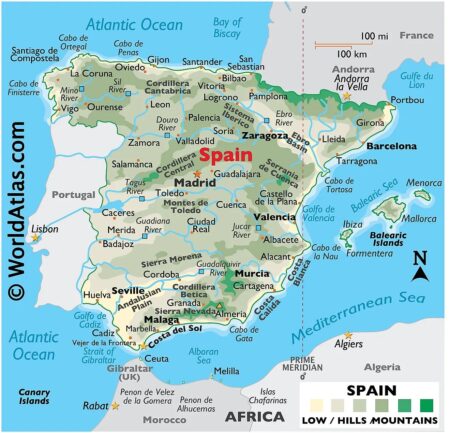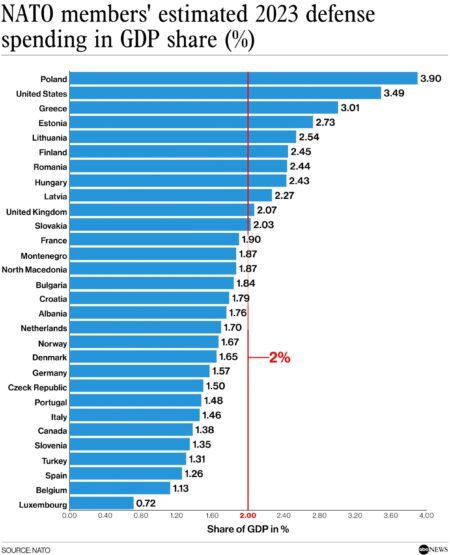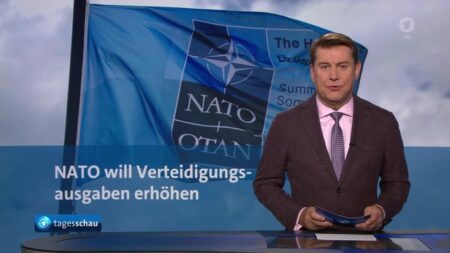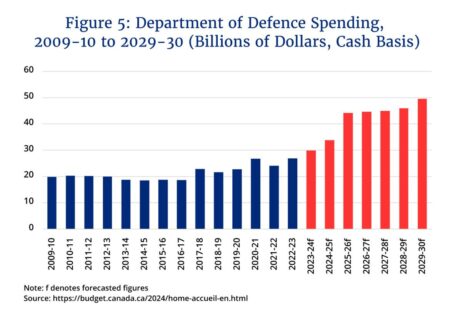German Chancellor urges Europe to slash red tape and boost defense spending amid rising geopolitical tensions. Emphasizing the strength found in unity, the leader calls for swift action to fortify Europe’s security capabilities
Browsing: military budget
Spain is set to unleash a staggering €33.1 billion investment in military modernization, signaling an unprecedented commitment to NATO. This ambitious initiative aims to supercharge defense capabilities and confront the escalating security threats challenging Europe today
The UK government has appointed a senior defence official to Rothschild bank amid a surge in military spending, spotlighting an expanding alliance between the defence sector and financial institutions, Intelligence Online reveals
New Japan Prime Minister is gearing up to dramatically increase the country’s defense budget, aiming to strengthen security amid escalating regional tensions, reports Barron’s. This bold decision signals a major turning point in Tokyo’s military strategy
Germany has launched an ambitious €80 billion rearmament plan, putting European and domestic weapons front and center while pushing US arms suppliers to the sidelines. This bold strategy signals a major shift amid rising geopolitical tensions
Italy’s bold vision for a bridge to Sicily is set to revolutionize NATO’s infrastructure strategy, boosting logistics efficiency and shaping the future of defense investments, Defense News reveals
Murray took center stage on CNBC to dive into the crucial changes in UK and NATO defense budgets, revealing strategic moves designed to tackle emerging security threats, as emphasized by the Atlantic Council
Italy is gearing up to classify the €13.5 billion Sicily bridge project as defense spending-a strategic move aimed at boosting its contribution toward NATO’s 2% GDP target. This bold step highlights Italy’s dedication to strengthening its military investment and fulfilling its alliance commitments with renewed vigor
Spain’s NATO spending deal is igniting fierce debate, with critics arguing it falls short of defense budget commitments. This controversy is fueling tensions within the alliance and casting doubt on Spain’s commitment to fulfilling NATO’s expectations
Spain is set to disrupt the upcoming NATO summit by opposing the alliance’s 5% defense spending target. This bold move highlights growing rifts over financial commitments amid rising security challenges, Reuters reports
Germany faces mounting pressure to boost its NATO defense spending to 5% of GDP. This ambitious move aims to strengthen the alliance’s readiness, yet it raises concerns about possible economic challenges amid an uncertain global environment, CNBC reports
Lithuanian Defense Minister strongly rejected any exemption for Spain from the 5% NATO spending target, emphasizing that every member must fully uphold their commitments. This stance underscores NATO’s unwavering determination to ensure all allies meet unified defense budget goals
The UK has boldly risen to meet NATO’s ambitious new 5 percent defense spending target, demonstrating a strong commitment to boosting military funding amid growing security challenges. This move underscores the increasing pressure on alliance members to elevate their defense budgets and reinforce collective security
Japan has abruptly canceled its upcoming “2+2” security talks with the US, following Washington’s push for Japan to ramp up its defense budget. This move highlights escalating tensions between the two longtime allies, reports Global Times
Spain has just secured a game-changing deal with NATO ahead of the upcoming summit, earning a crucial exemption from the 5% defense spending target. This breakthrough highlights the fierce negotiations over member contributions and budget priorities
NATO countries have pledged to ramp up their defense spending to 5% of GDP, marking a bold move to strengthen collective security amid rising geopolitical tensions, officials confirmed
Canada has announced an ambitious surge in defence spending to meet NATO targets, all while navigating ongoing tariff tensions. Finance Minister Carney emphasized this bold commitment as a powerful promise to strengthen alliance ties and safeguard economic stability
Spain is challenging NATO’s 5% defense spending target, emphasizing its economic hurdles and dedication to vital social programs. As discussions heat up within the alliance, Madrid urges for more flexibility, reports EL PAĂŤS English
Canada is making a powerful move, pledging billions in new defense funding to meet NATO’s 2% GDP target. Finance Minister Mark Carney announced this bold commitment aimed at strengthening national security amid rising global tensions
Defence spending is a matter of Australia’s sovereign right, Deputy Prime Minister Richard Marles declared, firmly rejecting pressure from the US. He emphasized that decisions on national security priorities and budgets are made independently, reflecting Australia’s own interests




